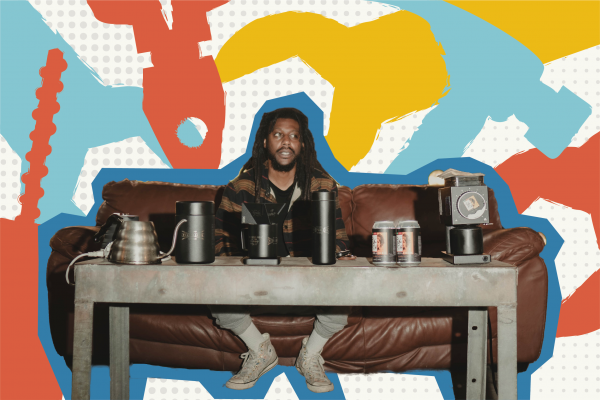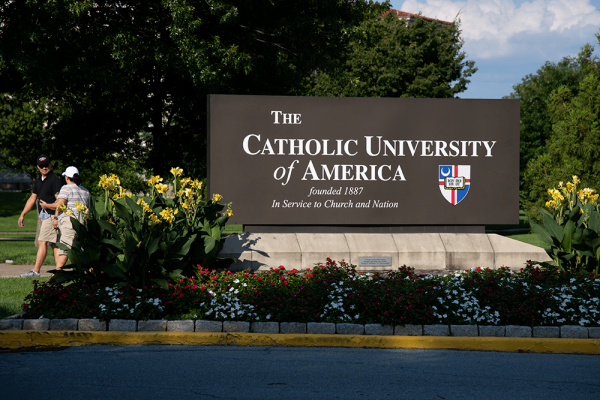What does a trailblazing Episcopal priest, a lawyer whose work helped to shape the Brown v. Board of Education case, a founding member of the National Organization for Women (NOW), and a close friend of Eleanor Roosevelt all have in common?
They are all the same person. And My Name Is Pauli Murray, a new documentary from Amazon Studios, tells the fascinating story. The documentary, which is available for streaming on Amazon Prime, explores the dynamic life and work of Rev. Pauli Murray, who died in 1985, by weaving together Murray’s own voice with the testimonies of those who knew that voice well.
Ordained in 1977, Murray is often lauded as the first Black woman in the United States to become an Episcopal priest. But photos and private writings suggest that Murray may have used other raced and gendered language to describe themselves. The film shows that Murray proudly identified as “Negro” because the then-newly introduced “black” racial identifier was not capitalized and Murray rejected the notion of being diminutive in any way. Murray also chose the gender-neutral name Pauli in young adulthood, and despite using she/her pronouns in public writings, referred to having a “he/she personality” when corresponding with loved ones.
This film works to honor the complexity of this icon by capturing some of the tensions Murray faced. For example, as a professor at Brandeis University, Murray was often at odds with student organizers in the Black Power movement despite being someone who sensed and felt the impact of segregation as an adolescent. Given that earlier arcs of the film show Murray’s bold activism and labor movement organizing, this tension may be surprising, but generational disagreements on what is effective and necessary in the work of justice and liberation are not uncommon in justice work — both then and now. The filmmakers do not sanitize these accounts; instead, they articulate the pain of a conflict between impassioned but differently motivated parties.
This honesty allows viewers to connect with Pauli Murray, whose complex life and personhood speaks wisdom into our own complicated realities, especially the unconscionable hardship so many of us have endured over the past two years: We’ve faced challenges to reproductive freedom, the ability to peaceably assemble, and the ability to learn or teach accurate histories related to racism and oppression — all while dealing with an inequality-exacerbating pandemic. Some days it is hard to muster up the strength to be present to ourselves and the world, let alone keep fighting unjust systems. We can find hope in seeing how those in the past worked to navigate, survive, and thrive in their contexts. My Name Is Pauli Murray offers a window into how Murray and other civil rights trailblazers existed, succeeded, and struggled during another immensely trying time. The film shows Murray navigating the demands of freedom fighting, managing mental health, and seeking personal liberation — an inspiration for those of us who find ourselves in desperate need of it.
Interestingly, Murray may have known that this would be the case. The film shows Murray meticulously chronicling and archiving their work and personal files. Film producer Bridges McMahon told Sojourners that despite Murray being a relatively private person in life, Murray left behind “diaries, letters to friends, and just all of these [artifacts sharing] intimate, vulnerable parts.”
These artifacts helped craft a picture of a person who boldly took on oppressive forces and injustice in the world, even while privately wrestling with deep questions of identity and belonging — things that so many people bear alone in silence.
Murray’s personal struggles were often deeply connected to the larger structures Murray fought to change. In the film, Murray challenges segregation on public transportation and engages in lunch counter sit-ins (years before more publicized accounts), while also recording fights with doctors to administer testosterone to address what Murray described as “one of nature’s experiments: a girl who should have been a boy.” Viewers also see Murray using a rejection of admission into an all-white graduate studies program as an opportunity to call the University of North Carolina and President Franklin D. Roosevelt into account, which subsequently led to Murray fostering a friendship with First Lady Eleanor Roosevelt. All the while, Murray was navigating repeated psychiatric institutionalization for depression. Today, we know both Murray’s triumphs and trials because Murray intentionally curated and preserved correspondences, doctors' notes, musings on gender and sexuality, and recordings that reveal parts of themself that published legal, activistic, or ministerial records or writings did not convey.
My Name Is Pauli Murray can help audiences see that not only do people contain multitudes, when they work to live into the fullness of who they are, they have the capacity to do groundbreaking things, even if their worlds are full of challenges.
Directors Julie Cohen and Betsy West shared with Sojourners that they hope audiences walk away more curious about the stories of people whose influence is obscured due to their marginalization and minoritization. Cohen shared that she’d like people to consider if there “is a whole other side of people whose stories are deeply worth knowing that we didn't learn about in school.” Pauli Murray is just one of many historical figures we need to learn more about, she noted.
My Name Is Pauli Murray manages to do what few films accomplish: It tells an honest story. The documentary renders its protagonist whole by praising Murray’s success without obscuring Murray’s challenges and failures. Viewers can expect to walk away surprised, inspired, and feeling a sense of resonance with this brilliant prophet, poet, priest, and professor who deserves much more acclaim than popular accounts of history have given. In the end, Pauli Murray is a bit more known to us and we are all made better by that knowing.
Got something to say about what you're reading? We value your feedback!







